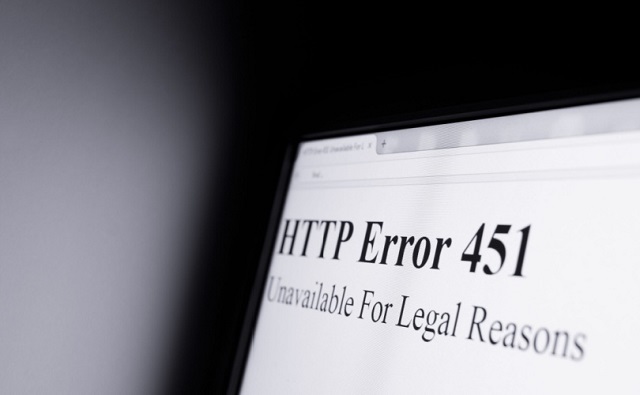Brownstone Institute
We Failed the Freedom Test

From the Brownstone Institute
BY
The remedy is worse than the disease.
Francis Bacon
The government never cedes power willingly.
Neither should we.
If the Covid-19 debacle taught us one thing it is that, as Justice Neil Gorsuch acknowledged, “Rule by indefinite emergency edict risks leaving all of us with a shell of a democracy and civil liberties just as hollow.”
Unfortunately, we still haven’t learned.
We’re still allowing ourselves to be fully distracted by circus politics and a constant barrage of bad news screaming for attention.
Four years after the onset of the Covid-19 pandemic, which gave world governments (including our own) a convenient excuse for expanding their powers, abusing their authority, and further oppressing their constituents, there’s something being concocted in the dens of power.
The danger of martial law persists.
Any government so willing to weaponize one national crisis after another in order to expand its powers and justify all manner of government tyranny in the so-called name of national security will not hesitate to override the Constitution and lockdown the nation again.
You’d better get ready, because that so-called crisis could be anything: civil unrest, national emergencies, “unforeseen economic collapse, loss of functioning political and legal order, purposeful domestic resistance or insurgency, pervasive public health emergencies, and catastrophic natural and human disasters.”
Covid-19 was a test to see how quickly the populace would march in lockstep with the government’s dictates, no questions asked, and how little resistance the citizenry would offer up to the government’s power grabs when made in the name of national security.
“We the people” failed that test spectacularly.
Characterized by Supreme Court Justice Neil Gorsuch as “the greatest intrusions on civil liberties in the peacetime history of this country,” the government’s Covid-19 response to the Covid-19 pandemic constituted a massively intrusive, coercive and authoritarian assault on the right of individual sovereignty over one’s life, self, and private property.
In a statement attached to the Supreme Court’s ruling in Arizona v. Mayorkas, a case that challenged whether the government could continue to use it pandemic powers even after declaring the public health emergency over, Gorsuch provided a catalog of the many ways in which the government used Covid-19 to massively overreach its authority and suppress civil liberties:
Executive officials across the country issued emergency decrees on a breathtaking scale. Governors and local leaders imposed lockdown orders forcing people to remain in their homes. They shuttered businesses and schools, public and private. They closed churches even as they allowed casinos and other favored businesses to carry on. They threatened violators not just with civil penalties but with criminal sanctions too. They surveilled church parking lots, recorded license plates, and issued notices warning that attendance at even outdoor services satisfying all state social-distancing and hygiene requirements could amount to criminal conduct. They divided cities and neighborhoods into color-coded zones, forced individuals to fight for their freedoms in court on emergency timetables, and then changed their color-coded schemes when defeat in court seemed imminent.
Truly, the government’s (federal and state) handling of the Covid-19 pandemic delivered a knockout blow to our civil liberties, empowering the police state to flex its powers by way of a bevy of lockdowns, mandates, restrictions, contact tracing programs, heightened surveillance, censorship, overcriminalization, etc.
What started off as an experiment in social distancing in order to flatten the curve of an unknown virus (and not overwhelm the nation’s hospitals or expose the most vulnerable to unavoidable loss of life scenarios) quickly became strongly worded suggestions for citizens to voluntarily stay at home and strong-armed house arrest orders with penalties in place for non-compliance.
Every day brought a drastic new set of restrictions by government bodies (most have been delivered by way of executive orders) at the local, state and federal level that were eager to flex their muscles for the so-called “good” of the populace.
There was talk of mass testing for Covid-19 antibodies, screening checkpoints, mass surveillance in order to carry out contact tracing, immunity passports to allow those who have recovered from the virus to move around more freely, snitch tip lines for reporting “rule breakers” to the authorities, and heavy fines and jail time for those who dared to venture out without a mask, congregate in worship without the government’s blessing, or re-open their businesses without the government’s say-so.
It was even suggested that government officials should mandate mass vaccinations and “ensure that people without proof of vaccination would not be allowed, well, anywhere.”
Those tactics were already being used abroad.
In Italy, the unvaccinated were banned from restaurants, bars and public transportation, and faced suspensions from work and monthly fines. Similarly, France banned the unvaccinated from most public venues.
In Austria, anyone who had not complied with the vaccine mandate faced fines up to $4100. Police were to be authorized to carry out routine checks and demand proof of vaccination, with penalties of as much as $685 for failure to do so.
In China, which adopted a zero tolerance, “zero Covid” strategy, whole cities—some with populations in the tens of millions—were forced into home lockdowns for weeks on end, resulting in mass shortages of food and household supplies. Reports surfaced of residents “trading cigarettes for cabbage, dishwashing liquid for apples and sanitary pads for a small pile of vegetables. One resident traded a Nintendo Switch console for a packet of instant noodles and two steamed buns.”
For those unfortunate enough to contract Covid-19, China constructed “quarantine camps” throughout the country: massive complexes boasting thousands of small, metal boxes containing little more than a bed and a toilet. Detainees—including children, pregnant women, and the elderly— were reportedly ordered to leave their homes in the middle of the night, transported to the quarantine camps in buses and held in isolation.
If this last scenario sounds chillingly familiar, it should.
Eighty years ago, another authoritarian regime established more than 44,000 quarantine camps for those perceived as “enemies of the state”: racially inferior, politically unacceptable, or simply noncompliant.
While the majority of those imprisoned in the Nazi concentration camps, forced labor camps, incarceration sites and ghettos were Jews, there were also Polish nationals, gypsies, Russians, political dissidents, resistance fighters, Jehovah’s Witnesses, and homosexuals.
Culturally, we have become so fixated on the mass murders of Jewish prisoners by the Nazis that we overlook the fact that the purpose of these concentration camps were initially intended to “incarcerate and intimidate the leaders of political, social, and cultural movements that the Nazis perceived to be a threat to the survival of the regime.”
How do you get from there to here, from Auschwitz concentration camps to Covid quarantine centers?
You don’t have to be a conspiracy theorist to connect the dots.
You just have to recognize the truth in the warning: power corrupts, and absolute power corrupts absolutely.
This is about what happens when good, generally decent people—distracted by manufactured crises, polarizing politics, and fighting that divides the populace into warring “us vs. them” camps—fail to take note of the looming danger that threatens to wipe freedom from the map and place us all in chains.
It’s about what happens when any government is empowered to adopt a comply-or-suffer-the-consequences mindset that is enforced through mandates, lockdowns, penalties, detention centers, martial law, and a disregard for the rights of the individual.
This is the slippery slope: a government empowered to restrict movements, limit individual liberty, and isolate “undesirables” to prevent the spread of a disease is a government that has the power to lockdown a country, label whole segments of the population a danger to national security, and force those undesirables—a.k.a. extremists, dissidents, troublemakers, etc.—into isolation so they don’t contaminate the rest of the populace.
The slippery slope begins with propaganda campaigns about the public good being more important than individual liberty, and it ends with lockdowns and concentration camps.
As I make clear in my book Battlefield America: The War on the American People and in its fictional counterpart The Erik Blair Diaries, the danger signs are everywhere.
Covid-19 was merely one crisis in a long series of crises that the government has shamelessly exploited in order to justify its power grabs and acclimate the citizenry to a state of martial law disguised as emergency powers.
Everything I have warned about for years—government overreach, invasive surveillance, martial law, abuse of powers, militarized police, weaponized technology used to track and control the citizenry, and so on—has become part of the government’s arsenal of terrifying lockdown powers should the need arise.
What we should be bracing for is: what comes next?
Republished from The Rutherford Institute
Brownstone Institute
WHO Accords Warrant Sovereignty Concern
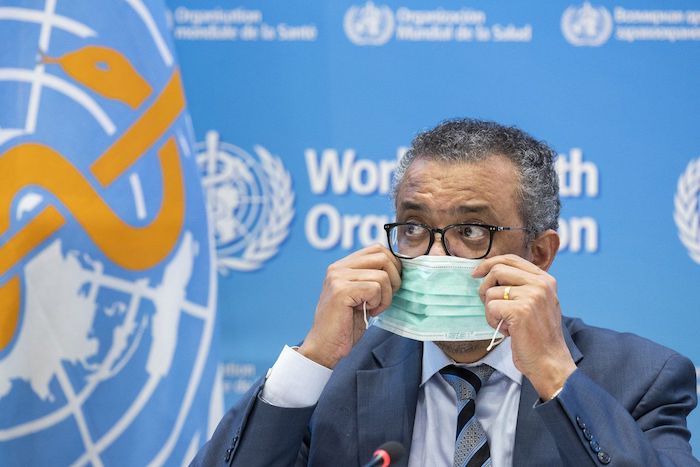
From the Brownstone Institute
BY
In agreeing to undertake to implement the WHO advisories, states will be creating a new system of pandemic management under the WHO authority and binding under international law. It will create an open-ended international law obligation to cooperate with the WHO and to fund it.
On 11 March, my article criticizing what appeared to be a slow-motion coup d’état by the World Health Organization (WHO) to seize health powers from states in the name of preparing for, conducting early warning surveillance of, and responding to “public health emergencies of international [and regional] concern” was published in the Australian. The coup was in the form of a new pandemic treaty and an extensive package of more than 300 amendments to the existing International Health Regulations (IHR) that was signed in 2005 and came into force in 2007, together referred to as the WHO pandemic accords.
The two sets of changes to the architecture of global health governance, I argued, will effectively change the WHO from a technical advisory organisation offering recommendations into a supranational public health authority telling governments what to do.
On 3 May, the Australian published a reply by Dr. Ashley Bloomfield, co-chair of the WHO working group on the IHR amendments. Bloomfield was New Zealand’s Director-General of Health from 2018–22 and received a knighthood for his services in the 2024 New Year’s Honours list. His engagement with the public debate is very welcome.
Rejecting the charge that the WHO is engaged in a power grab over states, Bloomfield wrote that as a one-time senior UN official, I “would know that no single member state is going to concede sovereignty, let alone the entire 194 members.”
I bow to the good doctor’s superior medical knowledge in comparison to my non-existent medical qualifications.
Unfortunately, I cannot say the same with respect to reforms across the UN system, or sovereignty, or the relationship between “We the peoples” (the first three words of the UN Charter), on the one hand, and UN entities as agents in the service of the peoples, on the other. On medical and not health policy issues, I would quickly find myself out of my depth. I respectfully submit that on sovereignty concerns, Dr. Ashley may be the one out of his depth.
On the first point, I was seconded to the UN Secretariat as the senior adviser to Kofi Annan on UN reforms and wrote his second reform report that covered the entire UN system: Strengthening the United Nations: An Agenda for Further Change (2002). The topic of UN reforms, both the case for it and the institutional and political obstacles frustrating the achievement of the most critical reforms, forms a core chapter of my book The United Nations, Peace and Security (Cambridge University Press, 2006, with a substantially revised second edition published in 2017).
I was also involved in a small Canada-based group that advocated successfully for the elevation of the G20 finance ministers’ group into a leaders’ level group that could serve as an informal grouping for brokering agreements on global challenges, including pandemics, nuclear threats, terrorism, and financial crises. I co-wrote the book The Group of Twenty (G20) (Routledge, 2012) with Andrew F. Cooper, a colleague in that project.
On the second point, I played a central role in the UN’s reconceptualisation of sovereignty as state responsibility and citizens as rights holders. This was unanimously endorsed by world leaders at the UN summit in 2005.
On the third point, in Utopia Lost: The United Nations and World Order (1995), Rosemary Righter (the former chief leader writer at the Times of London) quoted Alexander Solzhenitsyn’s description of the United Nations as “a place where the peoples of the world were delivered up to the designs of governments” (p. 85).
So yes, I do indeed know something about UN system reforms and the importance of sovereignty concerns in relation to powers given to UN bodies to prescribe what states may and may not do.
In agreeing to undertake to implement the WHO advisories, states will be creating a new system of pandemic management under the WHO authority and binding under international law. It will create an open-ended international law obligation to cooperate with the WHO and to fund it. This is the same WHO that has a track record of incompetence, poor decision-making, and politicised conduct. The insistence that sovereignty is not being surrendered is formulaic and legalistic, not substantive and meaningful in practice.
It relies on a familiar technique of gaslighting that permits plausible deniability on both sides. The WHO will say it only issued advisories. States will say they are only implementing WHO recommendations as otherwise, they will become rogue international outlaws. The resulting structure of decision-making effectively confers powers without responsibility on the WHO while shredding accountability of governments to their electorates. The losers are the peoples of the world.
A “Litany of Lies” and Misconceptions? Not So Fast.
Bloomfield’s engagement with the public debate on the WHO-centric architecture of global health governance is very welcome. I have lauded the WHO’s past impressive achievements in earlier writings, for example in the co-written book Global Governance and the UN: An Unfinished Journey (Indiana University Press, 2010). I also agree wholeheartedly that it continues to do a lot of good work, 24/7. In early 2020 I fought with a US editor to reject a reference to the possible virus escape from the Wuhan lab because of WHO’s emphatic statements to the contrary. I later apologised to him for my naivete.
Once betrayed, twice shy of the message: “Trust us. We are from the WHO, here to keep you safe.”
Sir Ashley was merely echoing the WHO chief. Addressing the World Governments Summit in Dubai on 12 February, Director-General (DG) Tedros Adhanom Ghebreyesus attacked “the litany of lies and conspiracy theories” about the agreement that “are utterly, completely, categorically false. The pandemic agreement will not give WHO any power over any state or any individual.”
DG Tedros and Sir Ashley do protest too much. If Australia chooses as a sovereign nation to sign them, that does not mean there is no loss of effective sovereignty (that is, the power to make its health decisions) from that point on.
This is why all 49 Republican senators have “strongly” urged President Joe Biden to reject the proposed changes. The expansion of “WHO’s authority over member states during” pandemic emergencies, they warn, would “constitute intolerable infringements upon US sovereignty.” In addition, 22 Attorneys-General have informed Biden that the WHO writ under the new accords will not run in their states.
On 8 May, the UK said it would not sign the new treaty unless clauses requiring transfer of pandemic products were deleted. Under Article 12.6.b of the then-draft, the WHO could sign “legally binding” contracts with manufacturers to get pandemic-related “diagnostics, therapeutics or vaccines.” Ten percent of this is to be free of charge and another ten percent at profit-free prices. In the latest, 22 April draft, this last requirement comes in Article 12.3.b.i in slightly softer language.
The UK wants to retain the right to use British-made products first to address domestic requirements as judged by the government, and only then to make them available for global distribution. The draft, the government fears, will undermine British sovereignty.
On 14 May, five senators and nine representatives from the Australian parliament wrote a formal letter to PM Anthony Albanese expressing deep concern over the likely prospect of Australia signing the accords that “will transform the WHO from an advisory organisation to a supranational health authority dictating how governments must respond to emergencies which the WHO itself declares.” If adopted and implemented into Australian law, they wrote, these would give the WHO “an unacceptable level of authority, power and influence over Australia’s affairs under the guise of declaring ‘emergencies’.”
“Legally Binding” vs “Loss of Sovereignty” is a Distinction without a Difference
They can’t all be part of a global conspiracy to peddle a litany of lies. The WHO is offering up a highly specious argument. Sir Ashley didn’t really engage with the substance of my arguments either. He dismissed criticism of the proposed changes as “an attempt by the WHO to gain the power to dictate to countries what they must do in the event of a pandemic” as a “misconception.”
The G20 Leaders’ Bali Declaration (November 2022, paragraph 19) supported the goal of a “legally binding instrument that should contain both legally binding and non-legally binding elements to strengthen pandemic planning, preparedness and response (PPR) and amendments to the IHR.” In September 2023, the G20 Delhi Leaders’ Declaration (28:vi) envisioned “an ambitious, legally binding WHO” accord “as well as amendments to better implement” the IHR.
Lawrence Gostin, actively involved in the negotiations, was co-author of a report last December that said containing transnational outbreaks under WHO leadership “may require all states to forgo some level of sovereignty.” A joint Reuters-World Economic Forum article on 26 May 2023 stated: “For the new more wide-reaching pandemic accord, member states have agreed that it should be legally binding.”
The WHO itself describes the IHR as “an instrument of international law that is legally-binding on 196 countries.” Last year it published a document that includes section 4.6 on “legally binding international instruments” such as a new pandemic accord.
I get the argument that sovereign states are voluntarily agreeing to this. In terms of legal technicality, it might well be more accurate, as Libby Klein suggests in her draft letter to Australian MPs, to use words and phrases like “ceding autonomy,” “yielding “effective control over public health decisions,” “outsourcing public health decision-making to the WHO,” or “offshoring our public health decision-making.” This is the legalistic distinction that Bloomfield is effectively making.
However, simply because states must voluntarily sign the new WHO accords doesn’t mean they will not be ceding sovereignty once the accords are adopted. With all due respect to Dr. Tedros and Sir Ashley, this is a distinction without a difference. Every single “legally binding” requirement will mean a transfer of effective decision-making power on health issues to the WHO. That is a curtailment of state sovereignty and it is disingenuous to deny it.
Since the creation of the United Nations in 1945, states have been required to conduct themselves increasingly in conformity with international standards. And it is the UN system that sets most of the relevant international standards and benchmarks of state behaviour.
For example, for centuries countries had the absolute right to wage wars of aggression and defence as an acknowledged and accepted attribute of sovereignty. By adopting the United Nations Charter in 1945, they gave up the right to wage aggressive wars. I am very glad they did so. Just because the surrender of this aspect of sovereignty was voluntary, it doesn’t mean there was no surrender of sovereignty.
Similarly, by signing the Nuclear Non-proliferation Treaty (NPT), Australia and around 185 states surrendered their sovereign right to make or get the nuclear bomb. Again, I am very glad they did so.
Article 10 of the treaty does permit withdrawal after a three-month notice to other states parties and the UN Security Council:
Each Party shall in exercising its national sovereignty have the right to withdraw from the Treatyif it decides that extraordinary events…have jeopardisedthe supreme interests of its country.
Australia could still act as a sovereign state and pull out of the NPT but, absent exculpatory events, only at the reputational cost of acting illegally under international law.
North Korea first announced withdrawal from the NPT in 1993, suspended the withdrawal, withdrew in 2003, has conducted six nuclear tests since 2006, and acquired up to 50 bombs. Yet, the UN has refused to accept the withdrawal and it is still listed on the UN website as an NPT member, with the explanatory note that: “States parties to the Treaty continue to express divergent views regarding the status of the DPRK under the NPT.”
Like these two important examples, states will lose key parts of the right to exercise their sovereignty over national policy settings and decisions on health if the WHO accords are adopted. It is their sovereign right to reject the treaties now. They should exercise it before it is too late. The complications entangling the post-Brexit referendum in the UK demonstrate only too vividly how challenging it can be for a state to extricate itself from a supranational authority despite the sovereign right to do so.
The best way to allay these fears and concerns would be to return responsibility to where accountability lies: with the national government and parliament. States should learn to cooperate better in global pandemic management, not hand effective decision-making powers and authority to unelected and unaccountable international technocrats.
The Effort Should Be Put on Indefinite Hold
It is an iron law of politics that any power that can be abused, will be abused by someone, somewhere, some time in the future. For current examples of overreach by a technocrat, look no further than Australia’s eSafety Commissioner. The truly frightening thing about her example is the realisation of just how much her efforts have been deliberately embedded in a global campaign to “bureaucratise” and control the internet.
A softer conclusion is that powers once granted over citizens to authorities are far more difficult to claw back than not giving them the powers in the first place. Thus far from retreating, the Censorship-Industrial Complex is simultaneously being broadened to embrace additional sectors of governance and public policy and globalised.
A report from Leeds University documented that pandemics are rare events. They are not becoming more frequent. For poor countries, their global disease burden is much lower than that of the big killer diseases like TB, malaria, and HIV/AIDS. For industrialised countries like Australia, the disease burden has been greatly reduced since the Spanish flu with improved surveillance, response mechanism, and other public health interventions.
There is no emergency justifying the rushed process. An immediate pause and a slow and deliberative process would lead to better policy development and deliver better national and global health policy outcomes.
“Pause for thought, argue for a wider delay, think it through properly. And don’t sign till it’s right.” David Frost, who led the UK Brexit negotiations.
Just so.
Brownstone Institute
Musk Wins Latest Censorship Battle in Australia
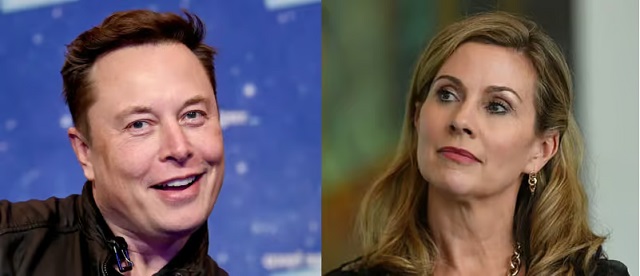
US billionaire Elon Musk, Australian eSafety Commissioner Julie Inman Grant
From the Brownstone Institute
BY
Can Australia’s eSafety Commissioner block content globally on demand? Not today, ruled the Australian Federal Court, in a win for Elon Musk’s social media platform X.
In a decision on Monday, Justice Geoffrey Kennett refused to extend a temporary injunction obtained by eSafety last month, which forced X to remove footage of the Wakeley church stabbing, an alleged religiously motivated terror attack.
Under the Online Safety Act (2021), the eSafety Commissioner, Julie Inman Grant, has the authority to order removal of such ‘class 1 material’ within Australia under threat of hefty fines.
eSafety argued that X had not gone far enough to block the content from Australians, as a geo-block can be circumvented by a VPN. X argued that eSafety was effectively seeking a global ban on content, straying outside of the Australian online harm regulator’s jurisdiction.
eSafety applied to the Federal Court to extend its temporary injunction against X, with a hearing taking place on Friday 10 May. The temporary injunction was due to expire at 5pm on Friday, but was extended to 5pm Monday—to allow time for Justice Kennett to deliver a decision on the matter.
In his decision, Justice Kennett held that X had taken “reasonable” steps to block the stabbing content as required under Australian law, and that eSafety’s request for a global ban was not reasonable.
Therefore, “The orders of the court will be that the application to extend…is refused,” said Justice Kennett, meaning that as of 5pm Monday, the injunction is no longer effective.
In a statement on the Federal Court decision, eSafety said that the matter will return to Court for a case management hearing on Wednesday, 15 May.

“The application for this injunction should have never been brought,” said Dr Reuben Kirkham, Co-Director of the Free Speech Union of Australia (FSU) in a statement, questioning the validity of the Commissioner’s bid to enact a global content ban on X. “The eSafety Commissioner is overreaching and behaving more like an activist than a responsible public servant.”
Dr Kirkham, who was present for the hearing, told Dystopian Down Under that he counted 12 lawyers present (seven for X, five for eSafety), which, if eSafety is ordered to pay costs, will lump taxpayers with “a considerable amount of unnecessary legal costs.”
Digital civil liberties nonprofit the Electronic Frontier Foundation (EFF) echoes FSU Australia’s position, stating that, “no single country should be able to restrict speech across the entire internet,” and likening the Commissioner’s actions to “[using] a sledgehammer to crack a nut.”
An affidavit submitted by the EFF to the eSafety vs. X proceedings called for the Court to consider the international impact that a ruling in eSafety’s favour would have in setting a precedent for allowing one country to enforce content bans on citizens of other countries.
“If one court can impose speech-restrictive rules on the entire Internet—despite direct conflicts with laws [in] a foreign jurisdiction as well as international human rights principles—the norms of expectations of all internet users are at risk,” stated the EFF in an article summarizing the affidavit.
X’s Global Government Affairs posted about the hearing, stating, “We’re glad X is fighting back, and we hope the judge will recognize the eSafety regulator’s demand for what it is—a big step toward unchecked global censorship—and refuse to let Australia set another dangerous precedent.” At the time of publishing, no updated statement on the Judge’s decision had been issued.

Dr Kirkham calls the Commissioner’s application to extend her injunction against X “part of a pattern where the eSafety Commissioner’s office seemingly engages in gamesmanship rather than respecting the rule of law or acting as a model litigant.”
Indeed, the ruling in X’s favour comes amidst mounting controversy over the eSafety Commissioner’s ongoing battle with X, which appears to be driven partly by Julie Inman Grant’s global censorship ambitions, and partly by personal feelings.
Inman Grant, who formerly directed Twitter’s Public Policy (Australia and Southeast Asia), has repeatedly criticized Elon Musk since his purchase of the Twitter platform in 2022.
Moreover, Musk’s advocacy for a broad interpretation of free speech on the internet conflicts with Inman Grant’s professed view of free speech as a right that needs to be “recalibrated” for online spaces.
Perhaps the biggest controversy between X and eSafety centres on the highly charged and subective issue of gender ideology.
Inman Grant has enforced the removal of a string of posts on X questioning gender ideology, including one suggesting that men can’t breastfeed, and another about a trans-identified male who allegedly injured female players during a women’s football game in NSW.
In an internationally high-profile case, the Commissioner recently issued a removal notice over an acerbic gender-critical post by Canadian activist Billboard Chris, raising questions over whether the Government should be able to police opinions and censor statements of biological fact on the internet.
FSU Australia is currently involved in Administrative Appeal Tribunal proceedings on behalf of Billboard Chris (real name Chris Elston) against the eSafety Commissioner. Additionally, X has threatened to sue eSafety over the matter.

Returning to the issue of the Wakeley stabbing footage, Inman Grant’s attempt to globally ban the content has been supported by the Australian Government, which leveraged the incident to call for more censorship, including the reintroduction of an unpopular misinformation bill.
Prime Minister Anthony Albanese has also responded to calls to address violence against women by proposing to further expand eSafety’s budget and remit, which could see deep fake pornography and “other misogynistic material” censored by the regulator.
No one will argue against explicit pornography being blocked from children’s view, but it is around the grey edges of definition creep on terms like ‘harm,’ ‘adult cyber abuse,’ and ‘misogynistic material’ where disagreements will undoubtedly kick off.
In a move of ‘no confidence’ against eSafety, FSU Australia has launched a petition to abolish the office of the eSafety Commissioner altogether, arguing that a combination of parental controls and platform incentives will suffice in keeping children safe on the internet.
A more moderate approach may be to curtail eSafety’s remit to its original function of dealing with child abuse content (as in 2015), and revenge porn (as in 2017), before the regulator’s purview and powers were significantly expanded with the introduction of the Online Safety Act in 2021.
However, in the media and political conversation, there is little appetite for a moderate approach, as conveyed in a viral guest appearance by media personality Tracey Holmes on a recent episode of the ABC’s failing show Q+A.
Calling out the double standard in the censorship conversation, Holmes told the studio audience,
“I don’t agree with any kind of censorship in a general sense. I don’t think Elon Musk is contributing to any social cohesion split inside this country. I think our mainstream media is doing enough of that. I think our politicians do enough of that…
“Of course there are fault lines everywhere, but there’s only one way you can stop those fault lines from getting bigger, and that is to have the ability to have the town square to hear different points of view…
“And I think unfortunately we’ve been fed ‘this side or that side’ for so long, people are giving up on mainstream media, that’s why they’re tuning out. That’s why they’re going to YouTube…we have let them down.”
Hopefully, some higher-ups in the corporate media tuned in to hear what Holmes had to say.
Read more about the judge’s decision
Republished from the author’s Substack
-
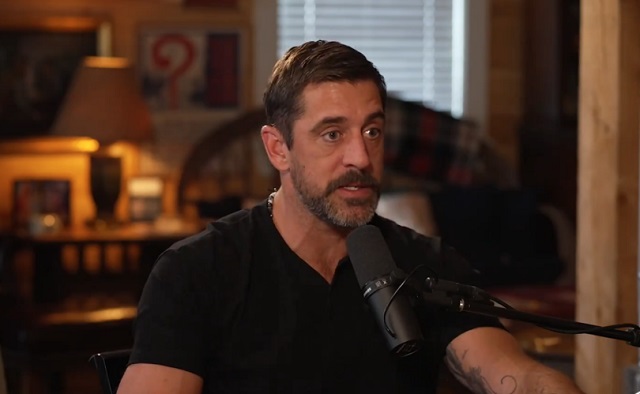
 COVID-192 days ago
COVID-192 days agoTucker Carlson and NFL star Aaron Rodgers discuss Bill Gates, COVID-19, US Deep State
-

 Opinion7 hours ago
Opinion7 hours agoUK set to ban sex ed for young children amid parental backlash against LGBT indoctrination
-
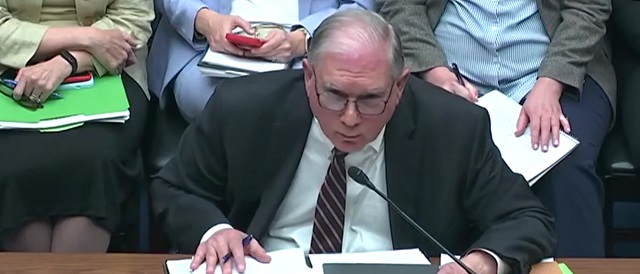
 COVID-191 day ago
COVID-191 day agoTop Fauci Aide Allegedly Learned To Make ‘Smoking Gun’ Emails ‘Disappear,’ Testimony Reveals
-

 Brownstone Institute20 hours ago
Brownstone Institute20 hours agoMusk Wins Latest Censorship Battle in Australia
-

 Censorship Industrial Complex8 hours ago
Censorship Industrial Complex8 hours agoAustralia passes digital ID bill, raising fears of government surveillance without accountability
-
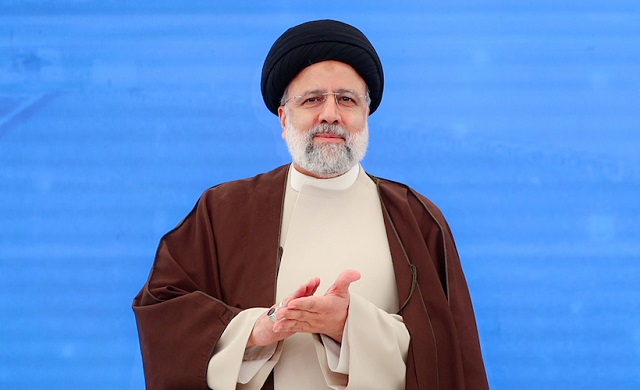
 International8 hours ago
International8 hours agoIran’s President Ebrahim Raisi, who oversaw mass executions, dies in helicopter crash
-
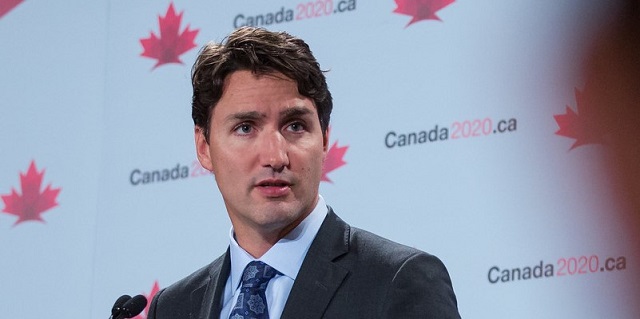
 Economy2 days ago
Economy2 days agoPrime minister’s misleading capital gains video misses the point
-
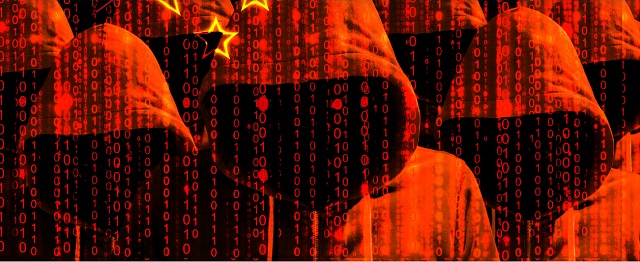
 COVID-191 day ago
COVID-191 day agoThe Vials and the Damage Done: Canada’s National Microbiology Laboratory Scandal, Part II











